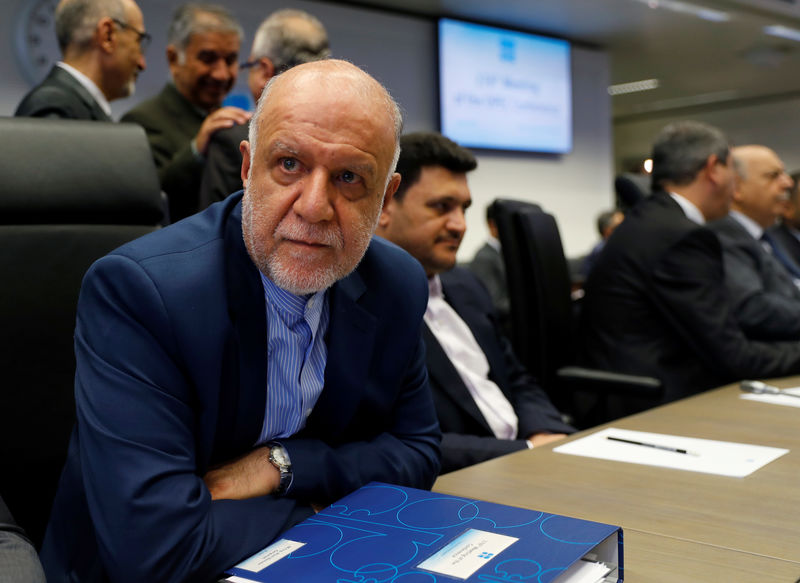By Parisa Hafezi
DUBAI (Reuters) - Iran will not succumb to U.S. pressure and will use every possible way to export its oil, Iranian Oil Ministry's website SHANA quoted Oil Minister Bijan Zanganeh as saying on Sunday.
Iran’s crude oil exports were reduced by more than 80% when the United States re-imposed sanctions on the country last November after President Donald Trump pulled out of Iran’s 2015 nuclear deal with world powers.
"We will use every possible way to export our oil and we will not succumb to America's pressure because exporting oil is Iran's legitimate right," Zanganeh said.
In response, Iran has gradually scaled back its commitments to the 2015 nuclear deal, under which Tehran accepted to curb its nuclear activities in return for lifting most international sanctions.
The increasing U.S. pressure on Iran has scared away foreign investors from doing business in the country.
Last year, China's National Petroleum Corp (CNPC) replaced French oil company Total (PA:TOTF) as the operator of Phase 11 project at South Pars gas field after the French company ended its participation rather than violate U.S. sanctions.
But late last year, CNPC suspended investment in the field in response to U.S. pressure.
"China's CNPC has totally pulled out of the South Pars Phase 11 development and Iran's Petropars company will carry out the job," SHANA quoted Zanganeh as saying.
Iran has the world’s second-largest reserves of natural gas, but it has not yet become a major exporter because of international sanctions imposed on the country for decades.
SHANA also quoted Zanganeh saying that Iran wanted to improve ties with Gulf Arab countries.
"We want to be friends with all regional countries ... they must not regard us as their enemy ... Our mutual enemy is outside the Middle East."
Iran and Saudi Arabia have repeatedly clashed at meetings of the Organization of Petroleum Exporting Countries over oil output policies. Tensions between the two countries flared after Saudi Arabia blamed Iran for an attack on Saudi oil facilities on Sept. 14., a charge Tehran denies.
"We have no dispute with Saudi Arabia ... I have no problem to meet with Saudi Arabia's oil minister," Zanganeh said.
Separately, Iran's Atomic Energy Organisation (AEOI) reiterated on Sunday that the country would reduce its commitments under the deal further if the European parties to the pact did not meet promises to shield Iran's economy from U.S. sanctions.

"We will go ahead with our plans to decrease our commitments to the nuclear deal if other parties fail to keep their promises," the Students News Agency ISNA quoted AEOI's spokesman Behrouz Kamalvandi as saying.